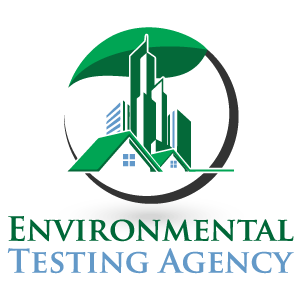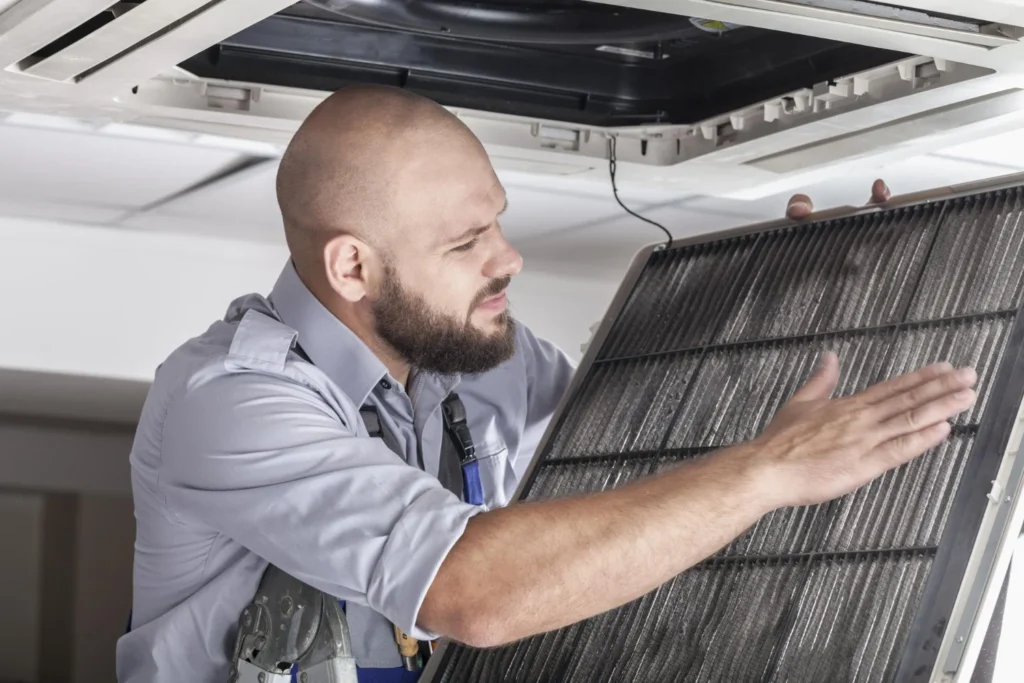Attic Mold Inspection &
Testing Services In Florida
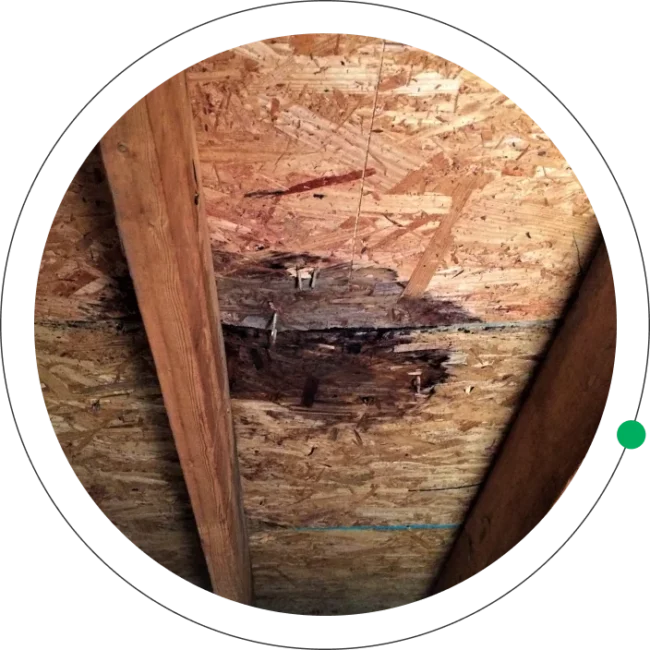
Attic Mold
The attic area is prone to mold growth due to several factors common in such spaces. Poor ventilation often leads to stagnant air and high humidity levels, creating an ideal environment for mold. For comprehensive mold testing, it is essential to assess these areas thoroughly.
Attics can also suffer from roof leaks, allowing water to seep in and keep surfaces damp. Additionally, temperature fluctuations can cause condensation on surfaces, further contributing to moisture buildup. This combination of poor airflow, moisture, and warm temperatures makes attics particularly susceptible to mold growth. Ensuring proper ventilation and addressing any leaks promptly, along with mold testing, can help mitigate these issues.

Common signs indicating mold
presence in an attic include
Look out for these warning signs and consider scheduling a mold testing to ensure the attic is free of hazardous mold growth:

Musty Odor
A persistent, musty smell in the attic.

Visible Mold
Black, green, or white spots or streaks on wood beams, insulation, or other surfaces.

Water Stains
Discoloration or staining on the underside of the roof or on the walls.

Wood Rot
Decaying or crumbling wood, especially on beams and rafters.

Peeling Paint
Paint that is bubbling, peeling, or cracking.

Condensation
Excess moisture on windows, walls, or the roof structure.

Health Symptoms
Increased respiratory issues, allergies, or skin irritation when spending time in or near the attic.

Insulation Issues
Wet, clumped, or deteriorating insulation.
Tips to Identify Attic Mold
- Look for black, green, or white spots or streaks on wood beams, insulation, or other surfaces.
- Check for discoloration or staining on the underside of the roof or on the walls.
- Inspect for decaying or crumbling wood, particularly on beams and rafters.
- Notice any persistent, musty odors in the attic, which can indicate mold presence.
- Check for condensation on windows, walls, or the roof structure.
- Look for wet, clumped, or deteriorating insulation.
- Inspect for bubbling, peeling, or cracking paint.
- Check for signs of water infiltration, such as dampness or puddles, especially after rain.
- Ensure that vents are not blocked by debris or insulation.
- Verify that exhaust fans from bathrooms or kitchens are venting outside, not into the attic.
- Use a mold testing kit to collect samples and send them to a lab for analysis.
- Hire a professional mold inspector to conduct a thorough assessment and testing.
- Inspect metal fixtures or nails within the attic for rust, which can indicate excessive moisture.
Keep your attic mold-free with regular inspections!
Ensure proper ventilation, insulation, and fix leaks quickly,
Want to avoid Attic Mold?
ETA tips for preventing it
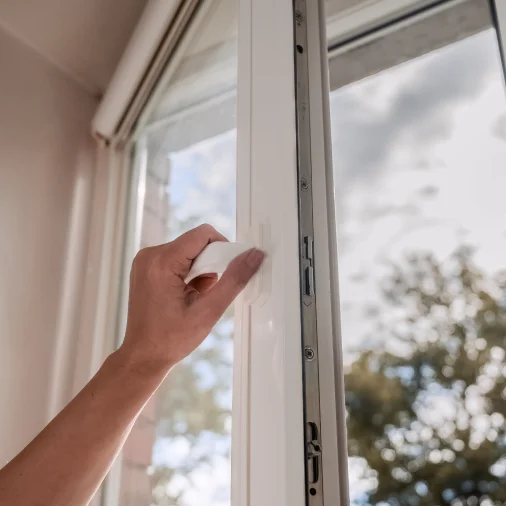
Ensure Proper Ventilation.
- Install and maintain adequate ventilation to allow airflow and reduce humidity levels.
- Use ridge vents, soffit vents, or attic fans to improve air circulation..
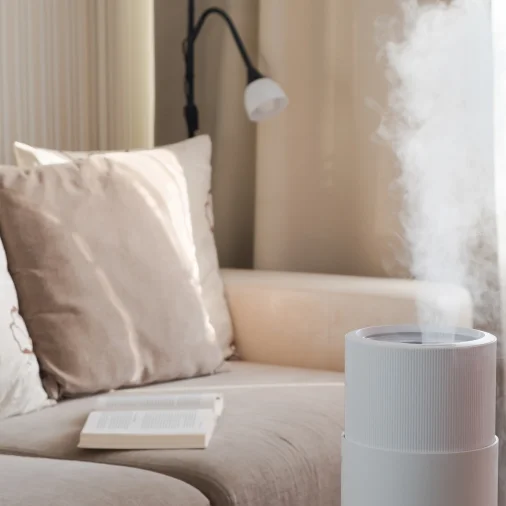
Control Moisture.
- Fix any roof leaks immediately to prevent water from entering the attic.
- Use a dehumidifier if the attic tends to be humid.
- Ensure exhaust fans from bathrooms, kitchens, and dryers vent outside and not into the attic.
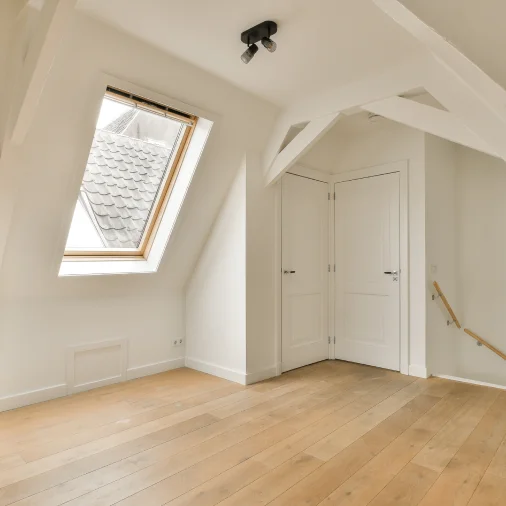
Insulate Properly.
- Insulate the attic to prevent temperature fluctuations that can lead to condensation.
- Make sure insulation is dry and in good condition.
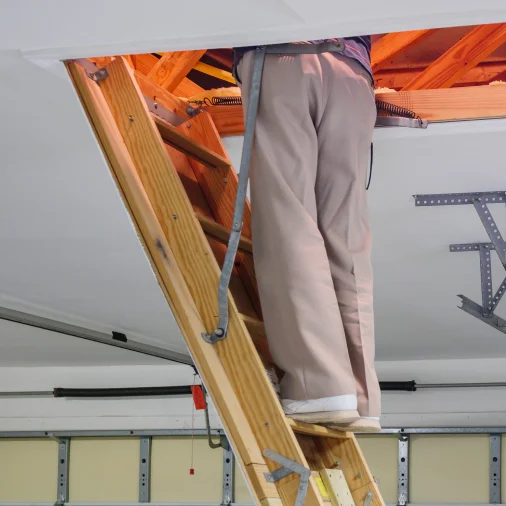
Regular Inspections.
- Inspect the attic regularly for signs of leaks, water damage, or mold growth.
- Check for blocked vents or insulation that may be hindering proper airflow.

Keep Attic Dry.
- Ensure that the attic floor is dry and free of any standing water or dampness.
- Avoid storing damp items in the attic.
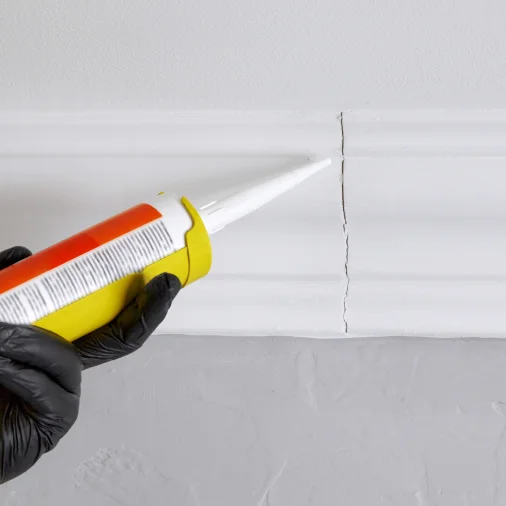
Seal Gaps and Cracks.
- Seal any cracks or gaps in the attic structure to prevent water infiltration.
- Check around chimneys, vents, and other openings.
Choose Environmental Testing Agency for Attic Inspection
Don’t let mold compromise the safety of your home. Our expert team at ETA specializes in Attic Mold Inspection & Testing across Florida, identifying potential hazards before they become costly problems. With our thorough inspection and advanced testing methods, we ensure your attic is mold-free, providing you with peace of mind and a healthier living environment. Schedule your inspection now and take the first step toward safeguarding your home and family.
Professional Mold Inspection & Air
Quality Testing Services in South Florida.
At ETA Mold, we specialize in attic mold testing throughout Florida. If you notice any of the signs listed above, it’s crucial to contact our professional team for a thorough inspection. We utilize advanced mold testing techniques to identify hidden mold and ensure your attic remains a safe, dry space.

The Mold Inspection Process

DETECTION
We’ll discover the source of infrastructure damage. This is imperative and also the first step in our process.

TESTING
We send all samples to an accredited laboratory. Our labs know this is our priority and will give the most detailed results possible.

ASSESSMENT
Our certified and licensed assessors will compile a comprehensive report providing our documentation and lab analysis. All information comes with a scope of work.

Why Choose Environmental
Testing Agency?
With years of experience and cutting-edge technology, we provide accurate mold testing and reliable inspections. Whether you’re a homeowner or business owner, our certified team ensures that any attic mold concerns are fully assessed and documented.
Our team is comprised of industry-certified experts with extensive knowledge and experience in environmental testing. We utilize the latest technology and methodologies to ensure accurate and reliable results, making us leaders in the field.
Expertise
We are committed to providing exceptional customer service. Our team is responsive, thorough, and dedicated to assisting clients through every step of the testing process. We prioritize clear communication and tailored solutions to meet your specific needs.
Customer Service
Quality is at the core of everything we do. From rigorous testing procedures to detailed reporting, we ensure that all services meet the highest standards. Our commitment to quality helps clients make informed decisions based on dependable data.
Quality
Licensed, Certified,
and Insured Mold Inspection
and Air Quality Testing Company.

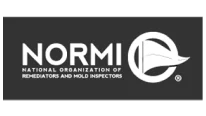



Before Booking an Air Quality Test
and Mold inspection Services
Receive $50 off!

Mold FAQ’S
A mold inspection typically involves a thorough assessment of a property to identify any mold growth and to determine the extent of the problem. It’s important to note that mold inspections are typically conducted by professionals trained in mold detection and remediation. If mold is found, further steps may be necessary to address the problem, such as mold remediation and ensuring proper moisture control in the affected areas.
The duration of a mold inspection can vary depending on several factors, including the size of the property, the extent of the suspected mold problem, and the thoroughness of the inspection process.As a rough estimate, a standard residential mold inspection for a moderately-sized home might take anywhere from 1 to 3 hours. Larger homes or more complex properties might require longer inspection times. It’s important for the inspector to take sufficient time to thoroughly assess the property and provide accurate findings and recommendations.
The specific equipment used during a mold inspection can vary based on the inspection protocol followed by the inspector and the nature of the suspected mold problem. Professional mold inspectors are trained to use these tools effectively to identify and assess mold issues in residential, commercial, and industrial settings
Yes, mold can definitely be hidden behind walls or under floors. Mold requires moisture to grow, and areas with hidden moisture problems are prime locations for mold growth.Detecting mold hidden behind walls or under floors often requires specialized equipment like thermal imaging cameras, moisture meters, or borescopes that can reveal moisture and mold growth without causing damage to the building materials. If there are signs of water damage, musty odors, or visible mold elsewhere in the property, it’s important to consider the possibility of hidden mold and conduct a thorough inspection to address the issue properly.
The frequency of mold inspections for your home depends on several factors, including the climate, the age and condition of your home, past moisture issues, and your sensitivity to mold or allergies.Ultimately, the decision on how often to have your home inspected for mold should be based on your specific circumstances and any risk factors present in your home environment. Regular inspections can help identify and address mold issues early, potentially saving you from more extensive remediation efforts later on.
The distinction between mold inspection and mold testing lies in their primary objectives and methods. A mold inspection involves a visual assessment of a property conducted by a trained professional to identify visible mold growth, water damage, and conditions conducive to mold. This process includes using tools like moisture meters and thermal imaging cameras to detect hidden moisture or mold behind walls. Its goal is to provide a comprehensive evaluation of potential mold issues and recommend appropriate remediation measures based on visible evidence and moisture levels. On the other hand, mold testing involves collecting samples from the air or surfaces within the property and analyzing them in a laboratory to confirm the presence of mold, identify the types present, and quantify their concentrations. Testing provides specific data on mold species and levels, helping to assess the severity of the problem and guide targeted remediation efforts. Together, inspection and testing form a comprehensive approach to managing mold by first identifying its presence and then confirming and quantifying its impact on indoor air quality and safety.
There are several types of mold tests available, each serving different purposes in assessing mold presence, identifying types of mold, and quantifying mold levels in indoor environments.Each type of mold test has its advantages and limitations, and the choice of which test to use depends on factors such as the suspected extent of mold growth, the specific information needed (e.g., type of mold, spore concentration), and the goals of the assessment. Professional mold inspectors or environmental consultants can recommend the most appropriate testing methods based on the situation.
“The accuracy of mold tests can vary depending on several factors, including the type of test used, the sampling methods employed, the conditions during sampling, and the interpretation of results. In summary, while mold tests can provide valuable information about mold presence, types, and concentrations, they are not infallible. It’s essential to use reputable laboratories and trained professionals for sampling and interpretation. Additionally, mold tests should be considered as part of a broader assessment that includes visual inspection and consideration of environmental conditions to provide a comprehensive understanding of mold issues in a property.”
The turnaround time for mold testing results can vary depending on several factors, including the type of test performed, the laboratory’s workload, and the specific protocols of the testing facility. After receiving the results, it’s advisable to review them with a qualified professional who can provide interpretation and recommendations based on the findings. They can help determine if remediation measures are necessary and guide further actions to address any mold issues identified.
Whether you should do mold testing yourself or hire a professional depends on several factors, including your expertise, the complexity of the situation, and the level of accuracy and reliability required.n conclusion, while DIY mold testing kits can be a cost-effective initial step for basic assessments, professional mold testing is generally recommended for more accurate, comprehensive, and reliable results. It ensures that potential mold issues are properly identified, assessed, and addressed according to industry standards and best practices.
Areas We Serve
In Florida
1. Miami Dade
- Coral Gables
- Coconut Grove
- Miami Beach
- Star, Palm & Hibiscus Island
- Key Biscayne
- Keystone Islands
- San Souci
- Miami Shores
- Pinecrest
- Brickel
- Bal Harbor
- Bay Harbor Islands
- Indian Creek
- Surfside
- Eastern Shores
- Sunny Isles
- Aventura
- Golden Isles
- Golden Beach
- The Roads
2. Broward
3.Palm Beach
- Royal Palm Beach
- Lake Worth
- Lantana
- Boca Raton
- Boynton Beach
- Manalapan
- Singer Island
- South Palm Beach
- North Palm Beach
- Tequesta
- Highland Beach
- Ocean Ridge
- Country Club Acres
1. Miami Dade
- Coral Gables
- Coconut Grove
- Miami Beach
- Star, Palm & Hibiscus Island
- Key Biscayne
- Keystone Islands
- San Souci
- Miami Shores
- Pinecrest
- Brickel
- Bal Harbor
- Bay Harbor Islands
- Indian Creek
- Surfside
- Eastern Shores
- Sunny Isles
- Aventura
- Golden Isles
- Golden Beach
- The Roads
2. Broward
- Bonaventure
- Hallandale
- Miramar
- Hillsboro Beach
- North Lauderdale
- Coconut Creek
- Hollywood
- Sea Ranch Lakes
- Oakland Park
- Sunrise
- Coral Springs
- Parkland
- Dania
- Lauderdale By The Sea
- Pembroke Park
- Tamarac
- Davie
- Pembroke Pines
- University Park
- Deerfield Beach
- Plantation
- Weston
- Fort Lauderdale
- Lighthouse Point
- Pompano Beach
- Wilton Manors
3. Palm Beach
- Royal Palm Beach
- Lake Worth
- Lantana
- Boca Raton
- Boynton Beach
- Manalapan
- Singer Island
- South Palm Beach
- North Palm Beach
- Tequesta
- Highland Beach
- Ocean Ridge
- Country Club Acres
- Jupiter
- Palm Beach
- Jupiter Inlet Colony
- Palm Beach Gardens
- Wellington
- Jupiter Island
- Palm Beach Shores
- Delray Beach
- Palm Springs
- Lake Clarke Shores
- Pelican Lake
- West Palm Beach

